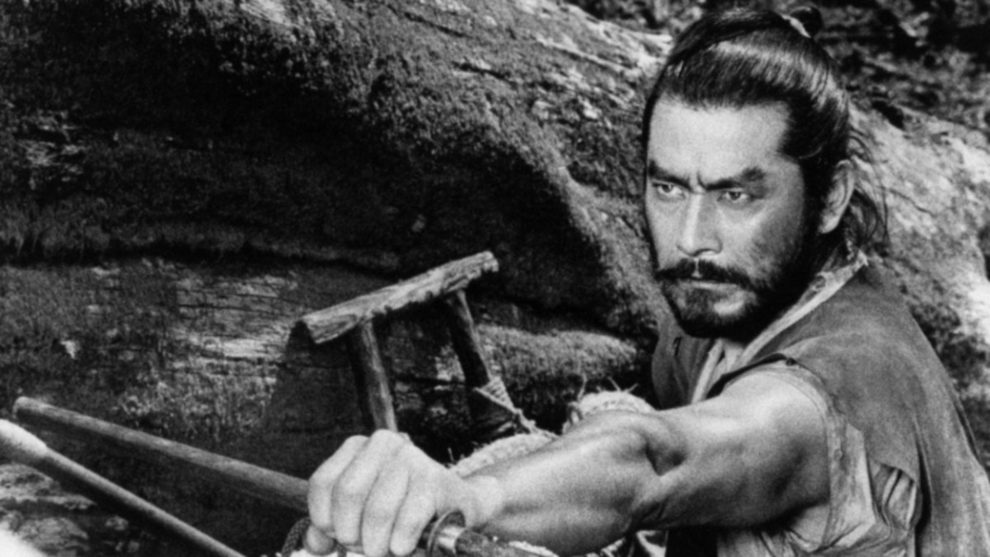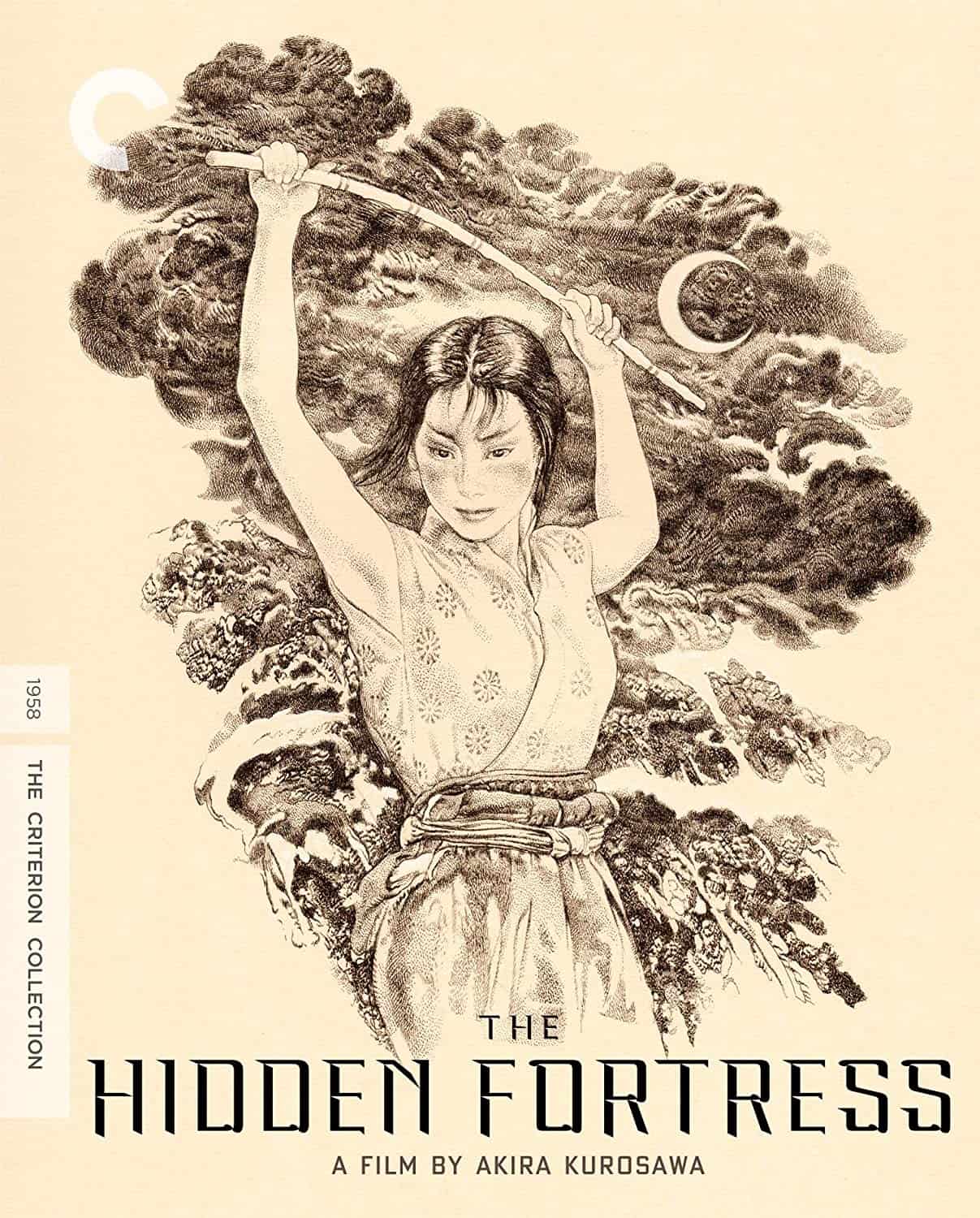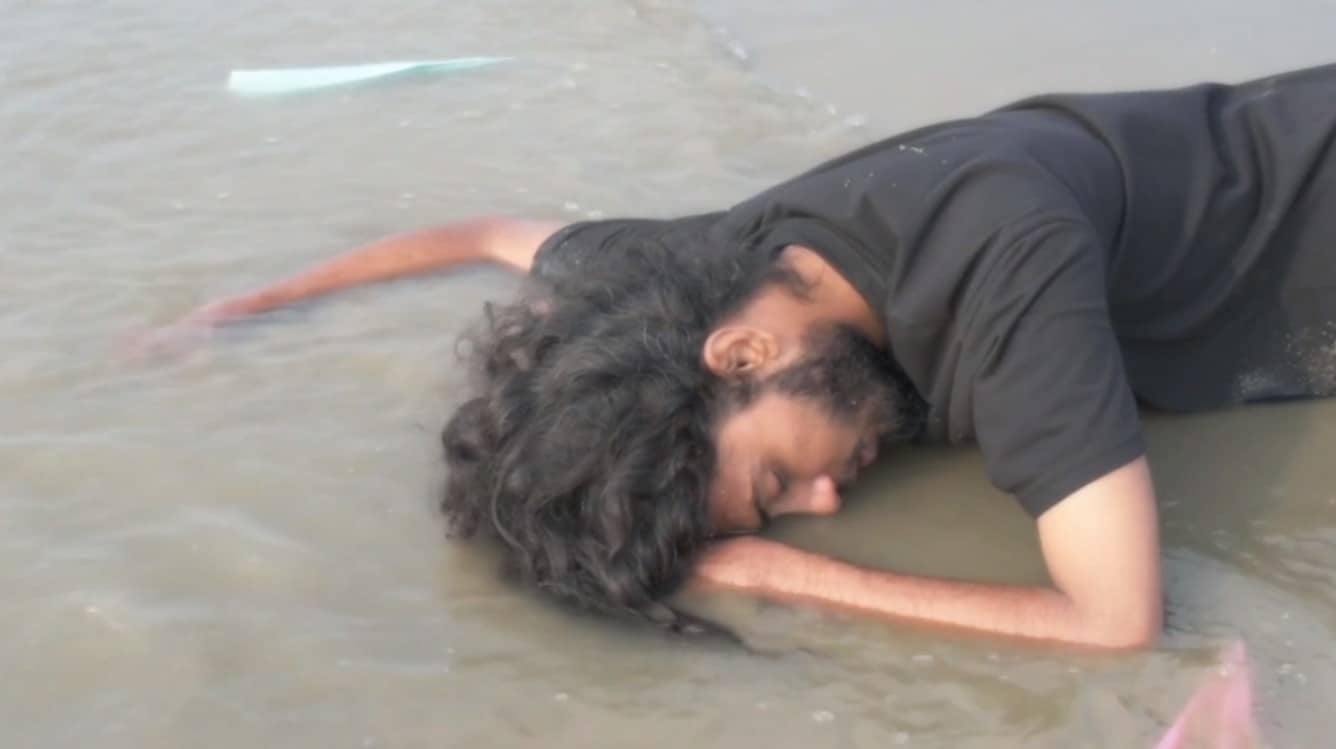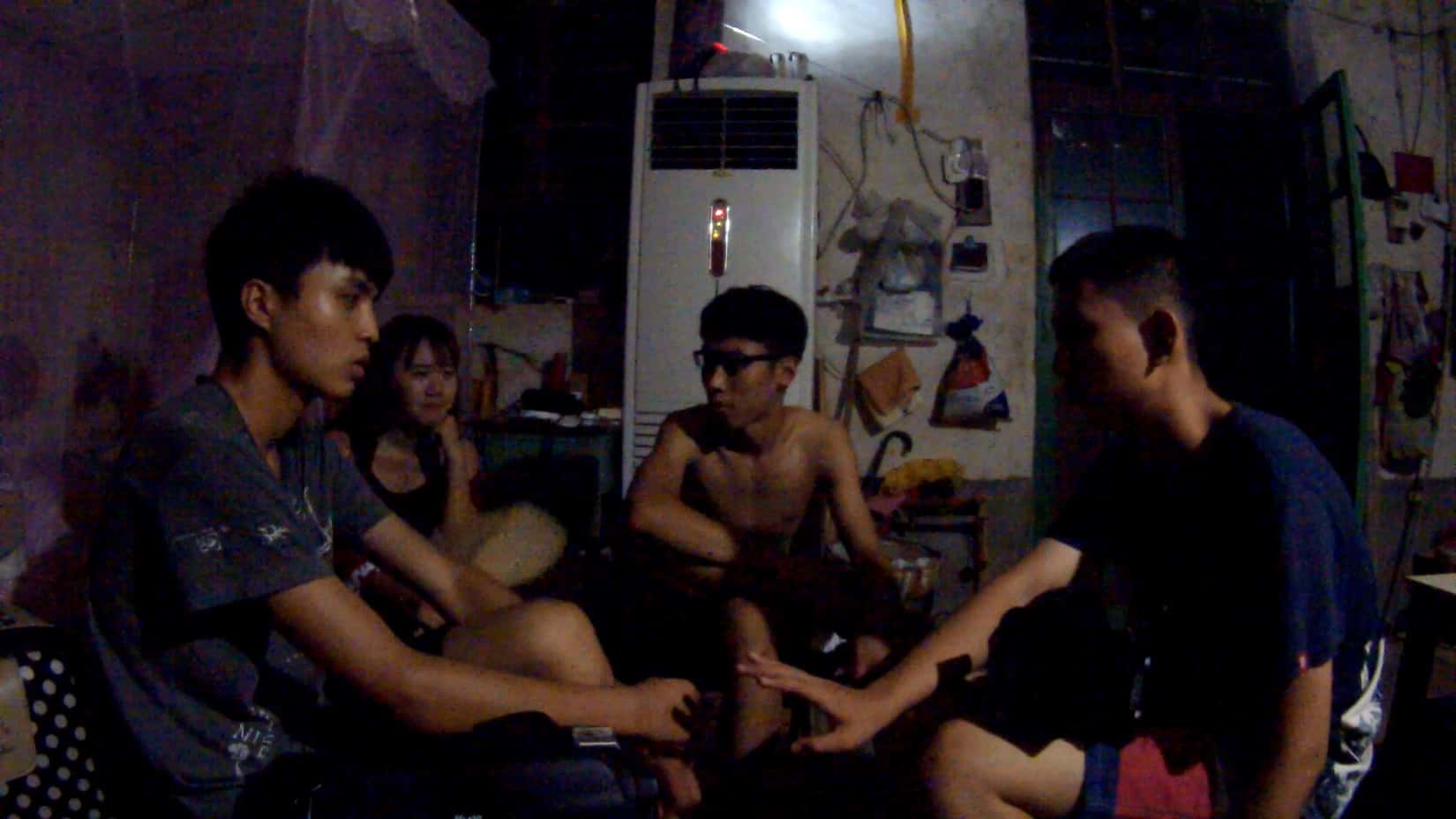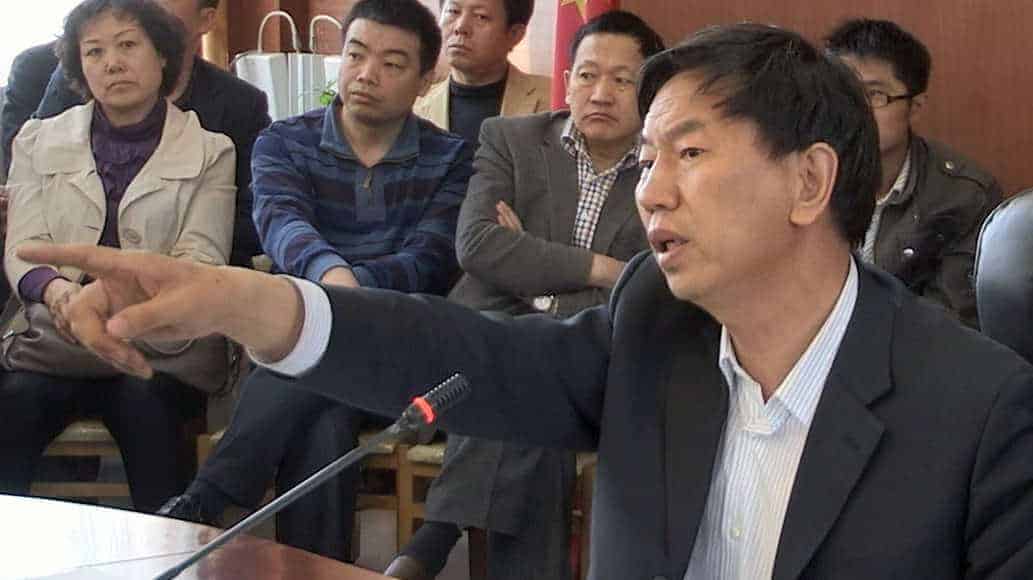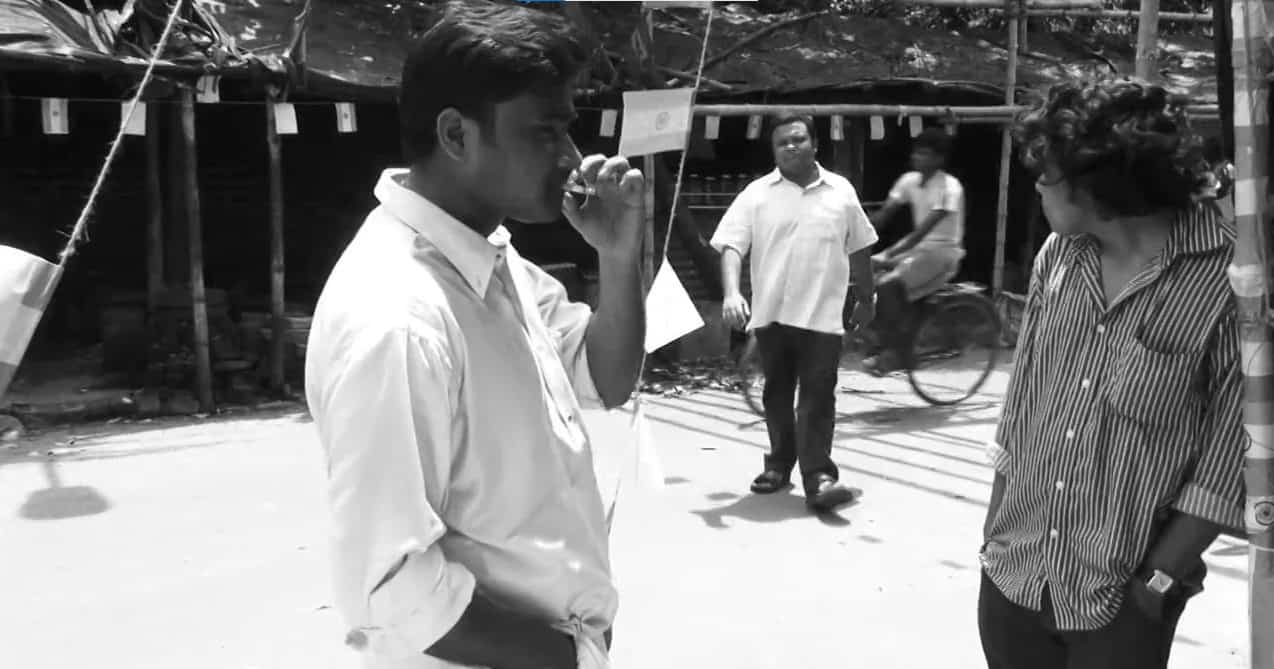After his dramatic feature “The Lower Depths”, Japanese auteur Akira Kuroswa returned to the jidai geki genre with his 1958 effort “The Hidden Fortress”. While the movie would continue his exploration of the human condition, in particular, its expression during times of war, this work also marks the first time Kurosawa would use the widescreen-format, a technology which would continue to influence his future works. Besides the often quoted “Rashomon” or “Seven Samurai”, to name just two examples, “The Hidden Fortress” may just be one of the director's most influential features as it inspired the likes of George Lucas and his Star Wars-movies.
Buy This Title
As mentioned before, the story is set during a time of war, after a significant battle has caused the near defeat of House Akizuki and its leaders. After their escape from imprisonment, two farmers and petty thieves names Tahei (Minoru Chiaki) and Matashichi (Kamatari Fujiwara) try to make their way back home. On their way, they stumble upon a piece of gold hidden in a piece of wood, which is part of the great treasure of House Akizuki, and start looking for the remaining pieces when they run into a stranger (Toshiro Mifune), who promises them he will help them find the rest of the gold and reveals himself as Rokurota Makabe, a mighty warlord for House Akizuki. After much hardship, they manage to dig up the remaining treasure which they now have to bring across the heavily guarded border, accompanied by Makabe and a mute (Misa Uehara).
However, Makabe's company is none other than the remaining leader of the Akizukis, Princess Yuki who needs to return her home to reign her people and rebuild her army with the help of the gold. After the loss of his last battle, Makabe feels obliged to rescue and protect her, even if it means sacrificing himself and the lives of others which makes him rely on the greed of his two newfound companions more than anything. Nevertheless, their disguise as a band of woodsmen is quickly blown and the enemies of Princess Yuki approach, willing to end House Akizuki once and for all.
It is no surprise many of Kurosawa's works, including “The Hidden Fortress”, are regarded as highly influential on modern blockbuster cinema. The script, written by Kurosawa and co-author Shinobu Hashimoto, combines dramatic elements with action as well as adventure, while also offering the occasional comic relief through the various shenanigans of Tahei and Matashichi. However, Kurosawa never loses focus of his characters, even minor ones, establishing their feature, the world they live in and the unique dynamics between them. Perhaps the smartest aspect is how the first minutes of “The Hidden Fortress” focus solely on Minoru Chiaki's and Kamatari Fujiwara's characters, thus giving a more than thorough and believable insight to a world and time defined by war and the struggle to stay alive.
On the other hand, Kurosawa shows the conflict between the realities of this world and the virtues someone like Rokurota stands for. Essentially, the encounter of the two farmers, the warrior and the princess emphasizes the clash of two realities, two perspectives on the war and two quite disparate ways of perceiving the world. Clearly, the motivation of characters like Rokurota, noble as it might be, is driven by the concept of the greater good and the ideas of bushido, though the latter is not explicitly named in the narrative. Mifune, similar to many collaborations with Kurosawa, again plays the hero, a role he fulfills with confidence, bravado and skill which is evident in scenes such as the brilliantly executed spear fight with an enemy general.
In some way, “The Hidden Fortress” also fulfills many of the criteria of the road movie, if one regards the traditional narrative of that genre as a journey of initiation. Perhaps best explained by Misa Uehara's character, the journey through enemy territory also helps to bridge the distance towards the empress and the common folk, showing rather drastically the grim realities of war, poverty and exploitation, with the authorities being mere observers rather than restorers of order and justice.
In conclusion, “The Hidden Fortress” by Akira Kurosawa is a magnificent and highly enjoyable show of talent, combining various genre elements to an entertaining feature. With its focus on well-defined characters, the world and times they live in, Kurosawa again demonstrates how a movie on a scale like this can be entertaining without being superficial, which is a lesson many modern (Hollywood) blockbusters have forgotten.


